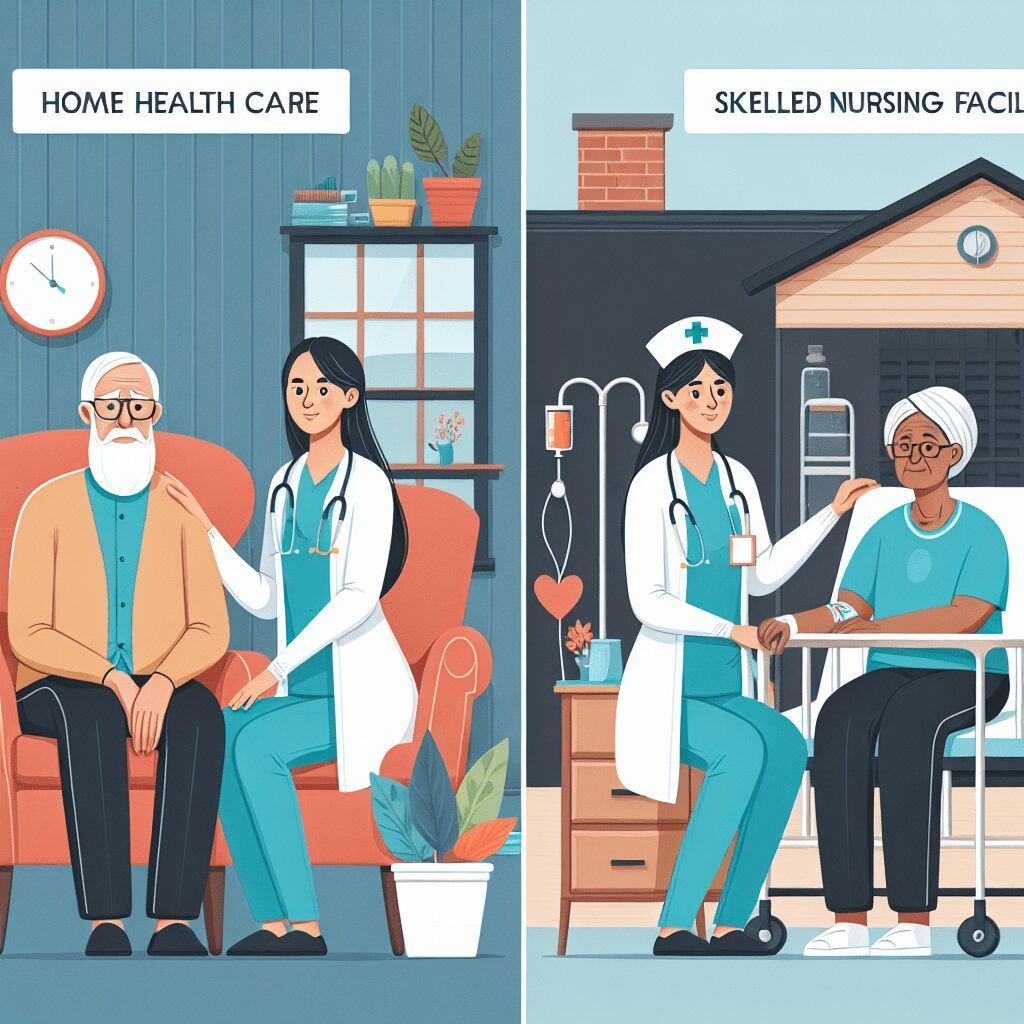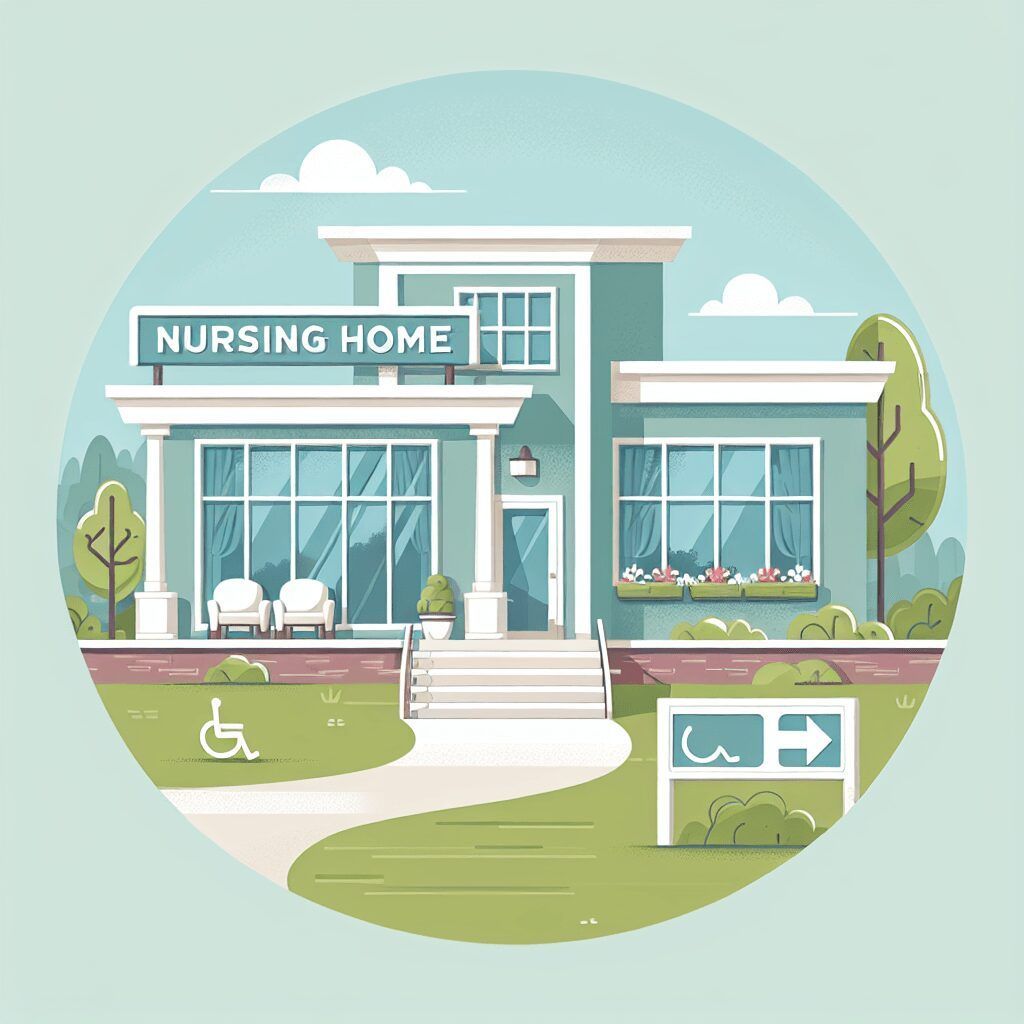Decoding SNF in Nursing Care
Have you ever wondered what SNF means in nursing care? The healthcare industry has many complicated terms, which can be hard to remember. In this article, we will discuss what SNF stands for in nursing, the rules that apply to these facilities, and the different types of care they provide.
Let’s dive into the world of SNF and understand its importance in delivering skilled nursing care.
Understanding Skilled Nursing Facilities
Skilled Nursing Facility Defined
A skilled nursing facility (SNF) is a place where patients can get around-the-clock care for their healthcare needs and daily activities. It’s for people who need short or long-term skilled nursing care and rehabilitation.
Patients at an SNF are evaluated for their physical and mental health, medication management, and daily activity abilities. Medicare can cover up to 100 days at a Medicare-certified SNF if patients meet the requirements.
On the other hand, a nursing home is more for those needing continuous custodial care as a permanent residence.
SNFs can’t charge patients a buy-in fee, have to give details about services and fees beforehand, and must follow strict federal rules. These facilities aim to help patients recover to safely go back home.
The staff at SNFs are trained medical professionals, such as nurses, therapists, and audiologists, who provide services like medication management and therapy to improve the patients’ quality of life.
SNF vs. Nursing Homes
A skilled nursing facility is different from a nursing home. SNFs are for temporary stays for patients needing rehabilitation. Nursing homes are for long-term care for those requiring constant assistance.
SNFs offer 24/7 healthcare and help with daily tasks. They have licensed medical professionals like nurses, therapists, and pathologists.
Patients in SNFs get health assessments, medication management, and assistance with daily activities. Medicare can cover up to 100 days in a Medicare-certified SNF.
SNFs provide important care after hospital stays. They help patients recover and reduce healthcare costs.
Distinct Part Facility Explained
A distinct part facility, like a skilled nursing facility , provides inpatient skilled nursing care, rehabilitation services, and medical treatment to patients after a hospital stay. SNFs focus on short-term rehabilitation to help patients regain independence, unlike nursing homes that offer more permanent custodial care.
These facilities must meet federal standards to receive Medicare and Medicaid payments. States ensure quality care through site visits and surveys, promoting patient safety. SNFs play a critical role in post-discharge care, reducing complications, hospital readmissions, and healthcare costs. Patients receive 24/7 care, including assessments, therapies, and help with daily activities.
Medicare covers up to 100 days in an SNF, with costs based on the patient’s needs and insurance coverage. SNFs significantly contribute to long-term care, aiding in patient recovery and well-being.
SNF General Services
Medical Care Services
Skilled nursing facilities (SNFs) provide a variety of medical services to patients, such as medication management, assistance with daily tasks, meal prep, wound care, and therapies like physical, occupational, and speech therapy.
Patients who require transitional care after a hospital stay can benefit from 24-hour care at SNFs for conditions like illness, injury, or surgery.
Trained medical professionals, including nurse practitioners, registered nurses, certified nursing aides, and therapists, ensure high-quality care at SNFs.
The healthcare team collaborates to assess patients’ health, medications, and daily living abilities to offer personalized care.
Regular health evaluations and monitoring are conducted to support patients’ well-being and ensure they receive optimal care during their time at the facility.
Therapy Services Offered
Therapy services at a skilled nursing facility cover a wide range of options. These include physical therapy, speech-language pathology services, and occupational therapy.
The services aim to meet the specific needs of patients at the facility. They help patients recover from various medical conditions or injuries.
Specialized therapy programs may focus on conditions like cardiac rehabilitation, post-stroke rehabilitation, artificial airway management, wound care, and enteral nutrition through feeding tubes.
Each patient receives an evaluation to identify their unique requirements. Therapy services are then tailored to meet their individual needs.
The goal is to offer comprehensive care that supports recovery, improves quality of life, and helps patients transition back home or to a more independent setting after discharge.
Nutritional Support and Dietary Services
Skilled Nursing Facilities in the U.S. provide specialized nutritional support to patients. This includes dietary counseling, meal preparation, and dietary assistance. The program caters to the unique dietary needs of patients, whether for short-term rehab or long-term care. Nutrition staff in SNFs are highly qualified professionals like registered dietitians and nutritionists. They conduct health assessments and ongoing monitoring to address patient dietary needs.
The program also promotes overall health by offering tailored meal plans and dietary counseling. This ensures patients receive the nutrition they need for recovery and quality of life.
State Oversight and Regulations
Regulatory Requirements for SNFs
Skilled nursing facilities in the U.S. must follow strict regulations from the federal government. This is to make sure they provide proper care and meet specific standards. Adherence to these rules is necessary for SNFs to get payment from Medicare and Medicaid.
States are in charge of making sure these federal requirements are being followed. They do this through surprise visits to check if SNFs are following the rules. These inspections can happen at any time and take several days to finish.
If a facility doesn’t meet the standards during an inspection, they have to address the issues within a set timeframe. They need to submit a plan showing how they will fix the problems.
This regulatory oversight is essential for maintaining the quality of care in SNFs and looking after the well-being of patients.
Medicare Coverage for SNFs
Medicare Eligibility Criteria
To be eligible for Medicare coverage of Skilled Nursing Facility services in the U.S, patients must meet specific criteria. These criteria are related to the patient’s health condition and the need for skilled nursing care.
Medicare assesses patients based on various factors such as their ability to handle daily activities, manage medications, and their physical and mental health. Patients must have had a qualifying hospital stay for an illness, injury, or surgery.
Additionally, they need medically necessary skilled nursing care provided by licensed professionals in an inpatient facility setting. Medicare determines eligibility by evaluating and assessing patients to ensure they genuinely need the level of care given by a skilled nursing facility.
Meeting these eligibility criteria is crucial to qualify for coverage of SNF services under Medicare. The costs of such care can be significant. If patients fail to meet the criteria, they may need to pay the full costs of SNF care. Therefore, evaluating and meeting the necessary requirements is essential to receive Medicare coverage.
Coverage of SNF Services by Medicare
Skilled Nursing Facilities offer a wide range of services covered by Medicare. These include rehabilitation services like physical, occupational, and speech therapy. Patients who meet Medicare’s requirements, which include a qualifying hospital stay, can get coverage for up to 100 days in a Medicare-certified SNF. This coverage is great for transitional care after a hospital stay, ensuring patients get the care and support they need.
SNFs are different from nursing homes because they provide temporary residence for patients receiving short-term treatment to improve their daily activities. Medicare coverage for SNF services mainly focuses on intensive rehabilitation and medical care. The goal is to help patients recover and avoid complications that could result in a return to the hospital, ultimately managing healthcare costs.
In SNFs, patients get round-the-clock care from skilled nursing professionals and other medical experts, ensuring quality care and support throughout their stay. SNFs also prioritize health assessments and evaluations. This helps in customizing treatment plans to provide personalized care according to the patients’ specific needs and goals.
SNFs Hospice Services
Incorporating Hospice Care into SNFs
Skilled nursing facilities in the U.S. provide long-term care for patients needing skilled nursing and rehabilitation services. They are also known as nursing homes. Patients receive temporary residence for medically necessary treatment, like transitional care after hospital stays. SNFs have various nursing professionals, such as nurse practitioners, registered nurses, and physical therapists, offering 24-hour care.
Services include medication management, wound care, physical therapy, andcardiac rehabilitation. SNFs must follow strict regulations, conduct health assessments, and explain patients’ legal rights in writing. Medicare covers up to 100 days in a certified SNF; patients are responsible for costs after. By including hospice care services, SNFs can better cater to patients’ needs, enhance end-of-life care, and coordinate with hospice providers for seamless care.
This integration can give patients and families peace of mind, improve quality of life, and manage chronic conditions effectively during their SNF stay.
Benefits of In-Home Skilled Nursing Over Skilled Nursing Facilities
One of the primary benefits of in-home skilled nursing over a skilled nursing facility (SNF) is the personalized care and attention patients receive in the comfort of their own homes. In-home skilled nursing allows for a one-on-one relationship between the patient and the healthcare provider, ensuring that the patient’s specific medical needs and preferences are met. This individualized attention can significantly enhance the quality of care, as nurses and caregivers can tailor their services to the patient’s unique conditions, preferences, and routines. Additionally, being in a familiar environment can reduce stress and anxiety for patients, promoting better overall well-being and recovery outcomes.
Another significant advantage of in-home skilled nursing is the increased involvement of family members in the care process. Family members can play an active role in providing emotional support and assistance, which can be incredibly beneficial for the patient’s mental health and recovery. In-home care also offers greater flexibility and convenience, eliminating the need for patients to travel to a facility and adapt to its schedules. This flexibility can lead to a more comfortable and efficient recovery process, as care plans can be adjusted to fit the patient’s daily routine and personal preferences. Furthermore, in-home care reduces the risk of hospital-acquired infections and other complications that can arise in a facility setting, contributing to a safer and healthier recovery environment.
FAQ
What is SNF in nursing care?
SNF, or Skilled Nursing Facility, is a type of nursing care facility that provides skilled nursing care for patients who require rehabilitation services or who have complex medical needs that cannot be met at home. Examples include post-surgery rehabilitation, wound care, and IV therapy.
How is SNF different from other types of nursing care facilities?
SNFs provide skilled nursing care and rehabilitation services, distinguishing them from other facilities like assisted living or independent living communities. They have a higher level of medical care and therapy services available, making them suitable for those needing more intensive care post-hospitalization.
What services are typically provided in an SNF?
Services typically provided in an SNF include 24-hour nursing care, rehabilitation services (physical, occupational, and speech therapy), assistance with activities of daily living (bathing, dressing, eating), medication management, social activities, and meals.
Who qualifies for care in an SNF?
Individuals who require skilled nursing care due to medical conditions, such as those recovering from surgery, stroke, or injury, qualify for care in a Skilled Nursing Facility. Admittance is typically based on a physician’s assessment of need for skilled care.
How is the care in an SNF decoded or deciphered for patients and families?
Care in an SNF is decoded for patients and families through regular communication with staff, reading care plans, attending care conferences, and asking questions about treatment plans and goals. Examples include reviewing medication lists, discussing rehabilitation progress, and understanding discharge plans.
Unravel the complexities of Skilled Nursing Facilities (SNFs) and how ABET Life Home Health & Caregiving offers a personalized alternative. Experience professional nursing care and comprehensive support in the comfort of your home, tailored to meet your specific needs. Contact us today to learn more about our in-home care services and how we can provide the dedicated care you deserve.
The post Decoding SNF in Nursing Care first appeared on Home Health & Care Giving Service in Houston, TX.












